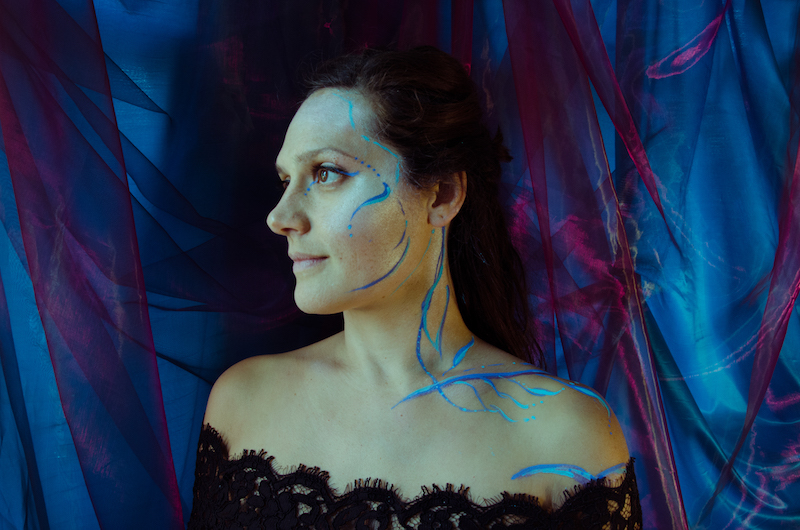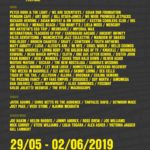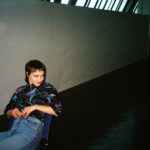[tps_header][/tps_header]
It’s a sleepy bank holiday and we’re at Cardiff’s drop-dead gorgeous Royal Welsh College of Music and Drama to see Written in Fire, a new collaboration between violinist Rakhi Singh and Bristolian electronica producer Seb Gainsborough aka Vessel. It’s a thirty-minute long piece of music inspired by Czech composer Leos Janacek’s String Quartet No. 2. Famously nicknamed ‘Intimate Letters’ by the composer himself, there’s some gossip attached to it, which it would be impertinent to address in any detail. Suffice to say, although they were very close, she didn’t reciprocate the feelings of a much older man, and anyway, they were both married. There is, as they say, no fool like an old fool.
The Singh Quartet can play ‘Intimate Letters’ from memory, and do so. I’m no connoisseur of classical music, but what is striking is all the things it’s not – there’s nothing sweet or sensual about this music. It begins as a welter of conflicting emotions and skips adventurously from theme to theme as if trying to get our attention. Janacek was a folklorist and had a deep relationship with traditional Slavic folk music, and there’s a sense of him drawing on all the obsessive resources of popular song. By the third movement, the structure has calmed down into something more intelligible to my lazy, pop ears. It’s tender and sad and, as if coalescing out of a maelstrom, finds its shape – as love does – for good or ill. Performed in this grand theatre, before a blood-red screen, the Singh Quartet find something disorienting and cinematic in the passion of the final movement.
After a short break, they’re joined by Vessel to perform Written in Fire. It begins with the sound of heavy breathing, which slows and quietens before a single violin starts its mournful keening. There are live visuals today from Portuguese film-maker Pedro Maia. These begin with abstract images of body parts, that might be elbows or a pair of torsos. As a skinny neck twists around on the screen behind them the other strings come in on the same motif and, after several bars, Gainsborough loops them and the full quartet burst frenziedly onward – a churning, chocolatey morass of drama and longing. Text scrolls over the screen behind them, “You’re like a savage and that’s why I love you”.
The music builds, and Gainsborough, crouched behind a podium where we can’t really see what he’s up to, wisely puts the emphasis on the strings in the early passages. Fans of last year’s Queen of Golden Dogs and its breakbeat dalliances with chamber music will not be disappointed, and working with someone as well versed in a classical idiom as Singh has given his work more clarity. Gradually electronic chirps and hums intrude, and lead to an arhythmic drum, which flails around like something unspeakable trying to escape a locked room. It’s an overwhelming storm of noise, which is what Vessel usually brings to the table. It’s about as subtle as rolling thunder, even warlike, and although exciting enough, there’s a sense that perhaps we shouldn’t be indulging this kind of obsessive heartbreak.
There’s a quieter, more traditionally electronic passage, redolent of cyberpunk cityscapes, and the androgynous nude figure in the film now wears a red hood that covers her face. In a deliciously surreal piece of imagery, the red hood is superimposed on a blinking eyeball. The latent violence soon becomes a bit more explicit – she’s caressing a heart, and I do mean an actual piece of butchery, and smears the blood over herself. Musically as well, we’re venturing more firmly into Nine Inch Nails territory at this point, and waiting for the strings to come back in it feels like it might all be a bit much.
But that’s the thing about unrequited love: By definition it’s all a bit much, and can quickly spill over into Grand Guignol. But what Gainsborough and Singh can’t match in Janacek’s erudition, they make up for in sheer bludgeoning power. It’s always fascinating to see classical and electronic sensibilities mingling, and they find some thrilling moments behind the bluster of one-sided passion.




